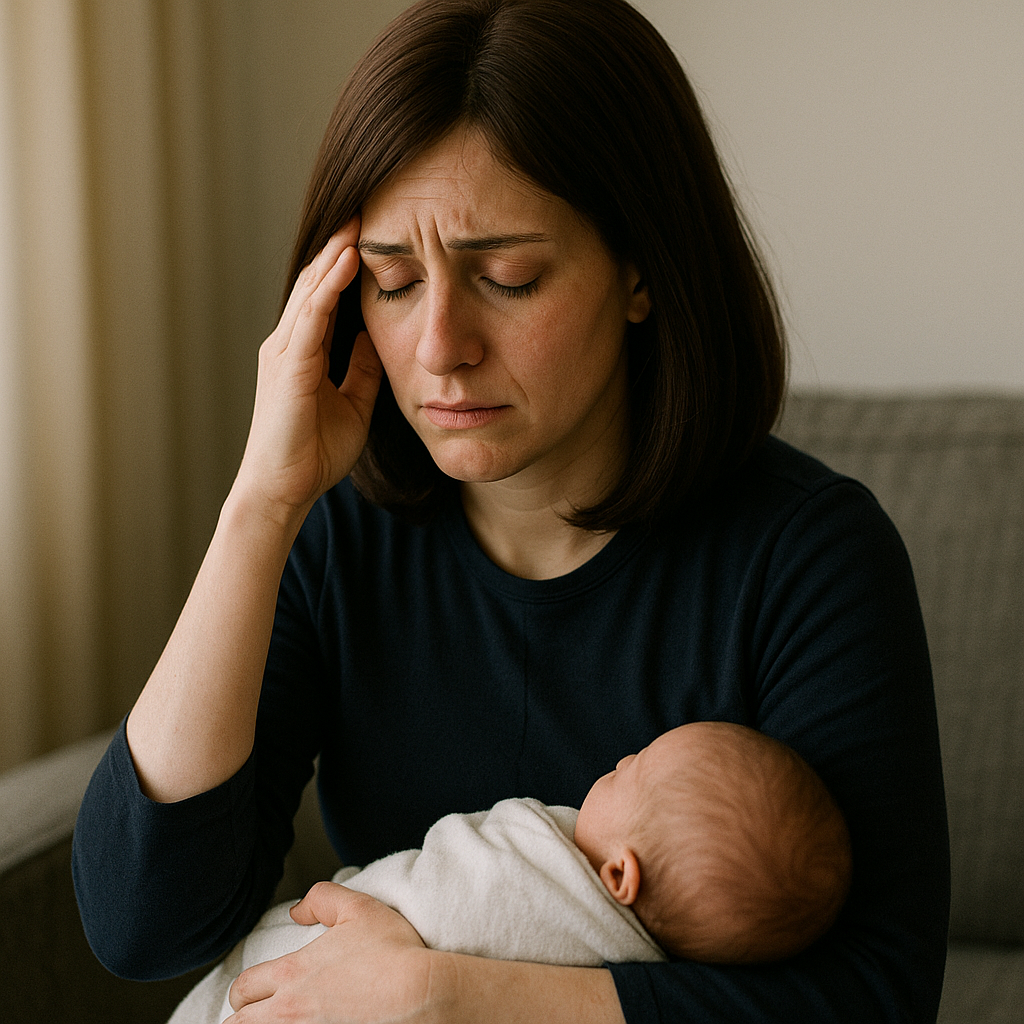Postpartum depression has become pretty well known, to the extent that some people even just use the term “postpartum” itself to refer to it. However perinatal mood and anxiety disorders (PMADS) include more than just depression and it’s important to distinguish between these different disorders. Aside from postpartum depression, PMADS include postpartum anxiety, postpartum OCD and postpartum psychosis.
Postpartum Anxiety: When Worry Becomes Overwhelming
Approximately 10-20 percent of women who give birth will experience postpartum anxiety. Symptoms include:
● Excessive worry or fear
● Physical symptoms of anxiety
● Sleep disturbances
● Restlessness or trouble relaxing
● Irritability
Postpartum OCD: Intrusive Thoughts and Compulsions
Postpartum OCD is less well-known but is believed to affect around 10% of postpartum women. It is characterized by intrusive, unwanted thoughts—often disturbing in nature—and compulsive behaviors performed in an attempt to reduce distress.
Common symptoms may include:
● Fear of accidentally harming the baby (e.g., dropping, suffocating, or contaminating them)
● Obsessive thoughts about cleanliness, safety, or symmetry
● Repetitive checking, cleaning, or mental rituals to “neutralize” the thoughts
Postpartum Psychosis: A Psychiatric Emergency
Postpartum psychosis is rare, one or two out of every one thousand women, but it is an extremely serious condition that requires immediate emergency care and intervention. Symptoms include:
● Delusions, (false beliefs that are out of touch with reality)
● Hallucinations
● Severe confusion
● Disorientation
● Rapid mood swings
● Bizarre behavior
Because postpartum psychosis can lead to harm for mother or baby, these are the stories that often make the news and lead to the might frightening headlines in both frum and secular media.
Distinguishing Between OCD and Psychosis
Since people with postpartum OCD and people with postpartum psychosis can both have thoughts about harming their baby, those who are experiencing the intrusive harm thoughts (OCD) can be terrified that they may end up like the tragic stories they have heard. Too often, stigma and fear prevent mothers from speaking up about their symptoms. It’s crucial that we foster environments—at home, in communities, and in healthcare—where women feel safe seeking help without fear of judgment or misunderstanding
It’s important to understand that postpartum OCD and psychosis are two completely different disorders, not a continuum on a spectrum. Individuals with postpartum OCD who are experiencing intrusive harm thoughts are no more likely to act out on them than any other person. It is not the beginning stages of psychosis. One has nothing to do with the other.
For someone with OCD, these thoughts are unwanted and distressing. They don’t align with their own values and sense of self. This means they don’t feel like “them” and are not aligned with their true desires or intentions. One mother described being haunted by the fear of dropping her baby down the stairs, so much so that she avoided holding him near any staircase. She knew the thought was irrational and unwanted—but couldn’t stop it. This is a hallmark of postpartum OCD.
In contrast, in postpartum psychosis, thoughts of harm can be part of delusions or hallucinations, which are experienced as real and not recognized as irrational. Due to the lack of insight and the belief in their delusions, individuals with postpartum psychosis are at a higher risk of acting on their thoughts and harming their baby. That’s why this condition requires immediate psychiatric intervention and may involve hospitalization and alternate care for the baby to ensure safety.
Recognizing the differences between postpartum depression, anxiety, OCD, and psychosis can help ensure mothers receive the right support and treatment. Education is key—not only to reduce stigma, but also to prevent misdiagnosis and promote better outcomes for both mothers and their babies. It’s not just about awareness—it’s about saving lives.
Chayi Hanfling is a licensed clinical social worker who is experienced and passionate in helping individuals, families, and couples. She specializes in couples counseling, EFT, women’s health, anxiety management, OCD, trauma, and other mental health challenges.
She can be reached at www.chaicounseling.org or [email protected]
(YWN World Headquarters – NYC)











